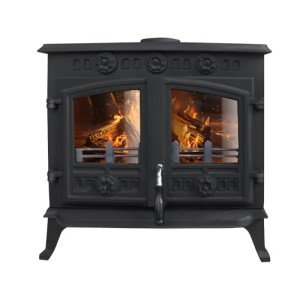The Versatility and Benefits of Multi-Fuel Stoves
Multi-fuel stoves have actually become a progressively popular choice for both house owners and outdoor enthusiasts alike. Their capability to burn a variety of fuels-- such as wood, coal, pellets, and gas-- supplies unrivaled versatility and performance in heating. This post checks out the advantages of multi-fuel stoves, their operational mechanisms, factors to consider for choosing one, and an overview of leading business in the market.
Tabulation
- Intro to Multi-Fuel Stoves
- Benefits of Multi-Fuel Stoves
- How Multi-Fuel Stoves Work
- Factors to Consider When Choosing a Multi-Fuel Stove
- Leading Multi-Fuel Stove Companies
- Frequently asked questions
- Conclusion
1. Intro to Multi-Fuel Stoves
Multi-fuel stoves are designed with the capability to burn more than one kind of fuel, making them an ideal solution for various heating requirements. These stoves are particularly valued in areas where one kind of fuel may not always be readily available, as they can switch in between different sources, providing convenience and reliability.
2. Benefits of Multi-Fuel Stoves
Multi-fuel stoves use many advantages that add to their growing popularity. Some of these benefits include:
- Versatility in Fuel Sources: Users can pick from a variety of fuels depending on accessibility and cost.
- Increased Efficiency: Multi-fuel stoves are crafted to take full advantage of heating efficiency while decreasing emissions.
- Eco-Friendliness: The capability to burn renewable sources like wood pellets makes these stoves a greener option.
- Cost Savings: With the versatility to change fuels, property owners can profit from the most affordable choices offered.
- Consistent and Reliable Heating: Multi-fuel stoves can be based on whatever fuel is available, guaranteeing constant heat in negative conditions.
3. How Multi-Fuel Stoves Work
The functional system of a multi-fuel stove focuses on its internal style and efficiency functions. A lot of multi-fuel stoves include:
- Firebox: A robust container where the fuel is burned. This location is designed to withstand heats.
- Air Intake System: Provides combustion air. The style typically includes adjustable vents to manage airflow and control the burn rate.
- Ash Pan: Collects ash produced from burning fuels, allowing simple clean-up and upkeep.
- Flue: An exhaust pathway directing smoke outside to avoid smoke accumulation inside the home.
When utilizing a multi-fuel stove, it's essential to follow the maker's guidelines to accomplish ideal efficiency and security.
4. Elements to Consider When Choosing a Multi-Fuel Stove
When picking the perfect multi-fuel stove, consider the following elements:
- Size: Choose a stove that fits your area. Procedure the area where it will be installed.
- Efficiency Ratings: Look for stoves with high effectiveness ratings to guarantee you get the most heating out of your fuel.
- Fuel Options: Consider which fuels are most accessible and affordable in your area.
- Emissions and Regulations: Research local regulations relating to emissions to ensure compliance.
- Cost: Factor in both the preliminary price of the stove and continuous fuel expenses.
5. Leading Multi-Fuel Stove Companies
A number of reliable companies concentrate on creating and manufacturing multi-fuel stoves. Below is a table of popular multi-fuel stove companies and their notable functions:
| Company Name | Significant Features | Product Range |
|---|---|---|
| Morso | Danish design, high effectiveness, eco-friendly | Small stoves to large models |
| Charnwood | Personalized designs, easy-fuel changing | Contemporary and standard |
| Stovax | A large range of styles and sizes | Multifuel and woodburner stoves |
| Blacksmith | Workmanship and sturdiness | Handmade artisanal stoves |
| Gazco | Ingenious technology, wise controls | Gas and electric services |
6. Frequently asked questions
1. What fuels can be burned in a multi-fuel stove?
Multi-fuel stoves can burn wood, coal, pellets, and often even peat and gas, depending on the model and style. It's important to examine the stove's manual to make sure compatibility.
2. Are multi-fuel stoves energy effective?
Yes, multi-fuel stoves are generally developed to be energy-efficient, taking full advantage of heat output while reducing emissions. Models with greater effectiveness scores can substantially reduce fuel intake.
3. Do I need a chimney for a multi-fuel stove?
Yes, the majority of multi-fuel stoves require a chimney or flue to vent smoke and gases safely outside your home.
4. How do Double Fronted Multi Fuel Stoves maintain my multi-fuel stove?
Regular upkeep involves cleaning the firebox and ash pan, examining the flue for obstructions, and checking seals and gaskets for wear. It's a good idea to have the stove serviced yearly by a professional.
5. Are multi- Multi Burner ?
When installed and preserved correctly, multi-fuel stoves are quite safe. Following maker standards and local guidelines will assist reduce threats.
7. Conclusion
Multi-fuel stoves represent a versatile and efficient option for heating needs, ideal for various settings, from cozy homes to rustic cabins. Multi Fuel Burning Stoves to adapt to numerous fuel sources enables users to take control of their heating preferences, contributing to both comfort and sustainability. As demand grows, leading makers continue to innovate, offering stoves that offer not only warmth however likewise visual and functional benefits.
Whether you are wanting to replace an existing heating option or checking out options for a brand-new construct, considering the functions and benefits of multi-fuel stoves will certainly inform a smarter investment in your home's heating requirements.

